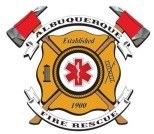
City’s First Responders Address High Emergency Call Volumes
Albuquerque Fire Rescue, Mayor Tim Keller, Albuquerque Police Department along with Family and Community Services offering new, innovative solutions to help reduce the increasing 911 call volume.
June 5, 2019
First Responders are meeting the demands of a 35-percent call volume increase over the past five-years. Several new City programs aimed at addressing high call volumes are showing promising results – including increasing AFR response times by 52 seconds for life threatening emergencies. In addition, the City plans on a coordinated effort from multiple agencies to adopt new strategies that have been proven to work in other cities and customize them to fit the needs of Albuquerque and its citizens.
“Improving emergency response times has been a priority since day one. Through our operating and capital budget as well as a demonstration of leadership prioritizing these initiatives, we believe these programs will complement the those already in place to help reduce or more effectively handle the types of 911 calls we see each and every day,” Mayor Keller stated.
Albuquerque Fire Rescue takes more calls than many other cities of similar size, often with fewer resources. In fact, almost half of AFR Engines and Rescues are responding at or above full capacity. The more calls a fire apparatus responds to, the less often they are available for other calls in their district and therefore apparatus from surrounding districts must respond resulting in increased response time to emergencies. This, according to the Commission on Fire Accreditation International (CFAI), which has identified a tool to measure when there is a need for new resources to assist with the high call volume within the apparatus response area.
In order to reduce 911 calls and increase availability, AFR has implemented several programs and solutions that are showing great promise. Along the Central corridor, AFR is placing three Basic Life Support Rescues to respond to public inebriate or down and out calls. Two of those units are already in place with the third coming soon. The Home Engagement and Alternative Response Team (HEART) launched in 2018 and focuses on providing better resources for high utilizers of the 911 system. AFR is streamlining current dispatch practices to better utilize apparatus as well as providing innovative options in how and when crews are placed out of service for training, health physicals, or vehicle maintenance.
AFR has implemented a strategy to educate the public on when 911 is best utilized, and when to offer 244-FIRE as an option for non-emergency calls. “We are fortunate to have such motivated and professional firefighters serving this community. They respond to more calls with fewer resources than many larger cities throughout the country. However, working together, we can provide them with the necessary resources to decrease our call volume and improve response times to life-threatening emergencies.” said Fire Chief Paul Dow.
Two other City departments are also contributing to help first responders stay available for true emergencies. The Department of Family and Community Services is proud to announce a partnership with Bernalillo County and University of New Mexico’s Health Sciences Center (UNMHSC) in an effort to reduce the number of 911 calls that are originating from the City’s Westside Emergency Housing Center (WEHC). The Emergency Housing Center’s newly renovated medical space provides health and case management services every Monday and Thursday. These services are designed to link those staying at the WEHC to necessary services and to reduce 911 calls by addressing health needs on site.
The Crisis Outreach and Support Team (C.O.A.S.T.) – which is part of the Albuquerque Police Department – is made up of civilians who work within law enforcement to help people living with mental illness, are experiencing homelessness, or have some other behavioral crisis that has come to the attention of the police. Currently C.O.A.S.T. consists of four employees. C.O.A.S.T.’s primary objective is to safely resolve the behavioral health crisis causing police interaction by referring the individual to professional mental health services. The C.O.A.S.T. specialist will contact the individual and follow up to ensure the person’s participation in appropriate prevention services and treatment options. The goal of this resource is to drastically reduce 911 calls in Albuquerque.

